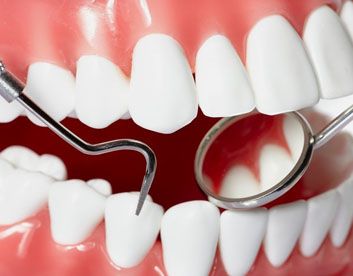Pedodontics
Pedodontics (Child and dentistry)
Pedodontics is the branch of dentistry dealing with children from birth through adolescence. This branch provides protection and development of healthy teeth.
Pedodontist is a medical professional who specialized in the diagnosis and treatment of teeth condition in children. It is important to establish a comprehensive and accessible ongoing relationship between the dentist and patient for the success of application. Fear of dentist can ease and child can succeed to overcome fear of dentist through ongoing relationship.
What does pedodontics include?
- Factors that affect the developing of baby teeth and calcification of teeth while baby is in the uterus of mother,
- After birth, eruption of tooth and factors that affect the eruption of tooth in babies,
- Calcification, eruption and development of permanent teeth,
- Treatment ways of baby tooth and permanent tooth rots for children,
- Protection ways of oral health for children,
- Relationship between oral health symptoms and systemic diseases,
- Protective dentistry,
- Tooth traumas and treatments,
- Protective dentistry and tooth treatment for disabled children,
- Preventing the problems that will occur because of early baby tooth loss.

What is the pedodontic applications?
- Fluoride therapy,
- Fissure sealant applications,
- Tooth retainer applications,
- Regulation of habit of nutrition.
What is the baby bottle tooth decay?
Baby bottle tooth decay is the common type of tooth decay that occurs in front teeth of children during their childhood.
What causes baby bottle tooth decay?
Baby bottle tooth decay happens when sweetened liquids or those with natural sugars cling to an infant’s teeth for a long time. Bacterias in the mouth thrive on this sugar and make acids that attack the teeth. At risk are children whose pacifiers are frequently dipped in sugar or syrup. Giving an infant a sugary drink at nighttime is particularity harmful, as the flow of saliva decreases during sleep. If parents neglect or think that brushing the teeth are early for infant, baby tooth decay develops quickly due to poor oral health and poor tooth enamel. Oral cleaning need to be done well after night feeding of baby.
What happens if baby tooth decay is not treated?
If patient does not visit dentist or tooth decay is not treated in the beginning, up front teeth and then baby teeth of children can be rotten badly. It causes pain and inflammation. If baby tooth decay is not treated, inflammation causes crooked teeth by preventing healthy teeth to appear. It also affects that child’s nutrition regularity and leads to serious health problems.
Must baby tooth decay be treated?
Baby tooth must be treated as permanent tooth treated. Baby tooth extracting can cause many problems, if it is done with the thought of “it will cut again”. Baby teeth are very important on nutrition. Rotten or extracted baby teeth can affect children’s development and nutrition badly. Teeth are necessary for speaking especially in the time of learning to talk in children. Missing baby teeth may cause future speech problems in children that it can take lifelong.
How should oral cleaning be for baby during first six months?
Babies usually cut their teeth within first six months. Changes in sleep, eating patterns, fussiness, rash drooling and diarrhea can be seen. Pressure from cold objects like chilled (not frozen) teething rings or rusks and thick-cut vegetables, carrot, cucumber can relieve discomfort from teething.
Oral Care of 6-12 Months Old Baby
When eruption begins in baby’s teeth, oral care is very important, because the bacteria that causes tooth rotting, cause the development of rot after eruption staying in the mouth of baby, if oral care is not made. After feeding and before sleeping, inside of mouth must be wiped with gauze, the teeth must be brushed gently with a soft brush. Artificial baby pacifier must not been dipped into the sugar, honey, etc. Finally, there must be no sugar in the food that is given with feeding bottle in the feeding at night.
Oral Care of 12-24 Months Old Baby
From 12 month babies must be examined by a pedodontist. Even if the baby has not any complication, you can make flour apply, if necessary, as well as obtain information about its dental health. Because the baby will meet the dentist for the first time in early age, you can help him to overcome the fear of dentist that will be able to occur in future. If the child can rinse his mouth, you can brush his teeth with a soft brush. Please, consider the oral care of the child, because the milk teeth are in the period of completion of eruption process.
Private Hurma Dental Health Polyclinic
Implant Placement Center - TURKEY
 Türkçe
Türkçe русский
русский Deutsch
Deutsch